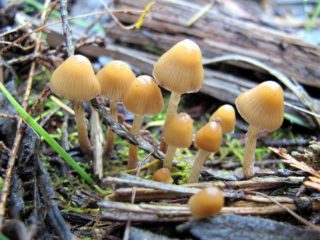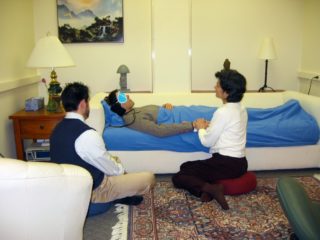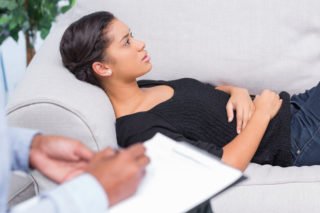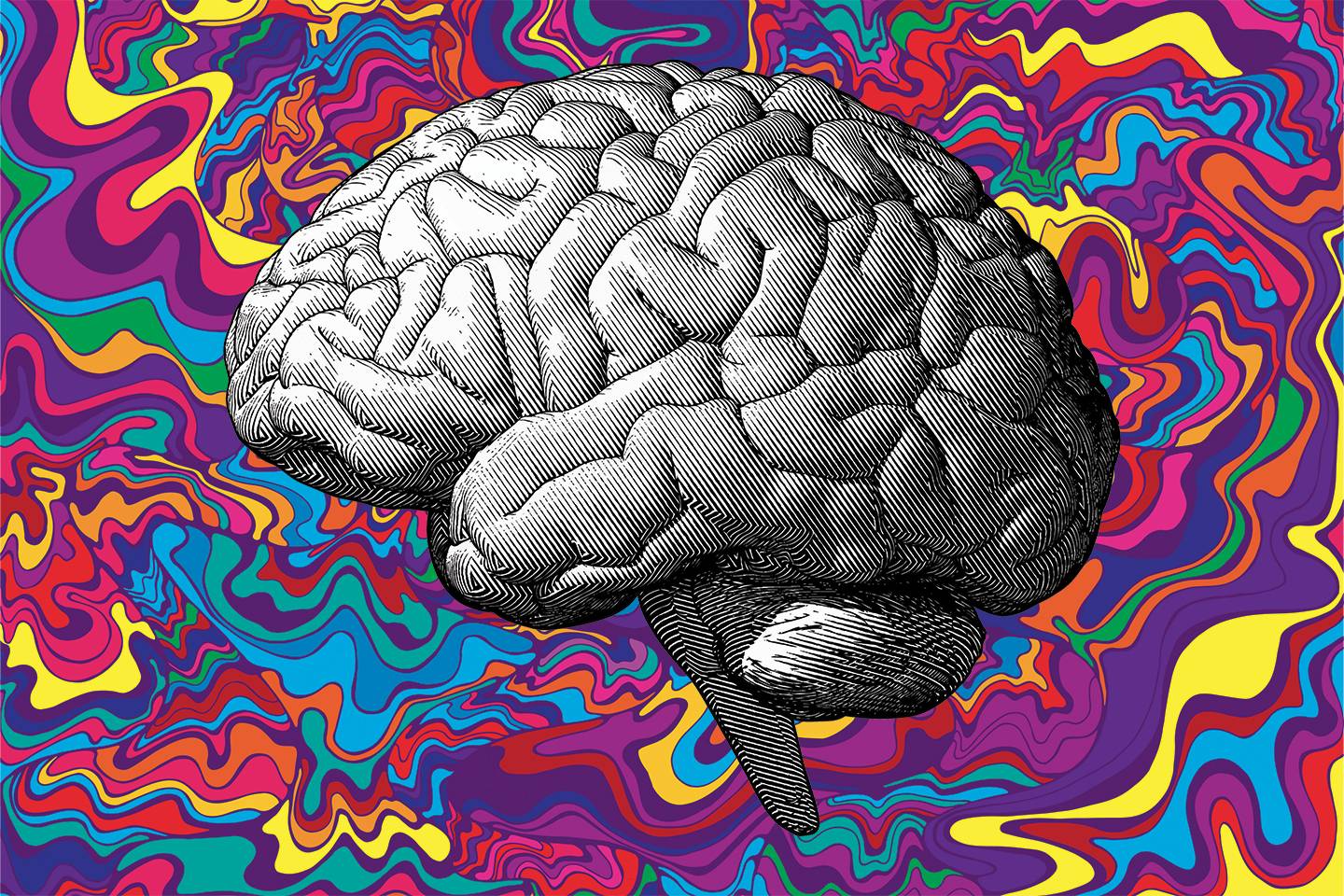The word “shrooms” often brings to mind the image of a flare-pant-wearing free spirits or rebellious students at a smoky party. However, this sacred plant is undergoing a major rebrand in the medical field. Washington is the latest U.S. state to decriminalize psilocybin therapy.
As the drug makes its transition from psychedelic montages to clinical studies, its unique properties are gaining recognition society-wide. And the main question on everyone’s mind is: what exactly is psilocybin, and what is it doing in my doctor’s office?
What is Psilocybin?
Apart from being a mouthful to pronounce, psilocybin (sil-uh-sahy-bin, you’re welcome) is a chemical compound found in certain types of hallucinogenic mushrooms. It’s similar to the compound of lysergic acid diethylamide, more commonly known as LSD. This can result in users experiencing feelings of euphoria and/or hallucinations as a result of the compound’s effect on the central nervous system. In short, it causes users to experience a “trip” This led to its obvious popularity in the 60s and 70s. However, the reported abuse of this substance resulted in its prohibition in late the 70s – it was classified as a Schedule 1 Substance by U.S authorities, for which the “potential for abuse outweighs their medicinal potential”.
 Mushrooms as Medicine
Mushrooms as Medicine
However, as the years passed and research regarding this drug progressed, studies found that psilocybin possesses the immense medicinal potential to aid in the treatment of psychiatric and behavioral disorders. Especially those patients who have proven to be treatment-resistant; the substance makes use of serotonin pathways (the happy hormone) in the brain to alter the subject’s thought process and perception of reality. This allows for deep introspective, hallucinatory, and even spiritual experiences.
Read more about the origins of psilocybin here.
Psilocybin therapy
Apart from sounding like the experiential version of Donna Summer’s “I Feel Love”, the effects of psilocybin can override the brain’s habitual connections which can be the source of consistent depressive, anxiety, and PTSD episodes. Sounds like magic? Here’s how:
The individual’s mental state while on this “trip” allows for the brain’s pathways to connect in different ways, as well as allowing new connections to form. This bypasses the brain’s “default” connections that are prone to the prompting of harmful episodes. It allows the user a different mental perspective on thoughts and experiences that would typically have been triggering. The continuous act of avoiding those “harmful” pathways in the brain and the creation of new connections can lead to lasting long-term therapeutic results for users.
Therapeutic Trips
Co-founder and president of the Heffter Research Institute located in New Mexico, Dr. George R. Greer, speaks on the topic of psychedelics as a form of therapy: “Our mission is two-fold: one to do research that helps us understand the mind, the brain, how all that works, and number two, to help reduce suffering through the therapeutic use of psychedelics.”
This is demonstrated by the use of psilocybin’s therapeutic properties to ease the existential anxiety that terminal cancer patients frequently experience. Dr. Ira Byock, the medical officer and palliative care specialist at Providence St. Joseph Health in Washington, says that the therapeutic use of psilocybin allows for spiritual introspection. During this time patients are able to shift their perspective regarding their existence.
“What psychedelics do is foster a frameshift from feeling helpless and hopeless and that life is not worth living to see that we are connected to other people and we are connected to a universe that has an inherent connection,”
The compound further aids in calming the physical effects that accompany this existential dread.

Johns Hopkins: Assisted Psilocybin Therapy Research
Psilocybin therapy allows patients to experience a sense of calm, acceptance, and tranquility.
The Calming Effect
Research shows that psilocybin further has the potential to aid in the treatment of anxiety and addiction. It has also been researched for eating and obsessive-compulsive disorders, as it enhances the mood of the user. This allows them to distance themselves from the neurotic thoughts often linked to the above-mentioned disorders; the drug also has a calming effect, which aids in re-stabilizing the individual’s temperament. This can also be applied to the symptoms associated with a myriad of addictions, which the mushroom can also help with.
How Will It Work?
According to Kelsey Ramsden, CEO of Mind Cure company, the typical psilocybin-centered therapy session might take the following form in the future:
Taking place in a comfortable, living room-like space, a dose of psilocybin will be administered to the patient, and then licensed therapists will guide the user through their experience. This will be done either by means of verbal prompts, or by simply being present throughout the patient’s experience, Psilocybin can be taken in pill-form, eaten as a dried mushroom, or brewed as a tea. A single dose can last up to 6 hours, allowing for weeks’ worth of progress within that single session.
Start Small
However, not everyone is ready to embark on a full therapeutic journey. The mushroom can also be taken in the form of a micro-dose. Taking approximately 0,4g of dried psilocybin mushrooms (a 10th of the regular doses for a “journey”) can substantially elevate the user’s mood without the hallucinogenic element of the experience, simply leaving them feeling much happier, and more creative, and at peace. This allows the user to remain fully cognizant and functioning and reduces the risk of triggering psychosis in individuals, especially ones who could have underlying conditions, such as schizophrenia.
Psilocybin is not considered to be an addictive substance, but micro-dosing further lessens the chances of addiction, as the “trip” that it causes isn’t substantial enough for users to constantly chase the high it provided.
What Can Go Wrong?
However, as with all things in life, psilocybin is not all rainbows and unicorns. Some of the downsides of this mushroom are that it can cause side effects such as nausea, muscle fatigue, dizziness, and a sense of paranoia. Hallucinogens can also cause users to have a “bad trip”, which can be an extremely distressing experience.
Furthermore, the human body is prone to building up a tolerance to the repeated use of the drug, eventually rendering it ineffective, regardless of the dosage. Another significant downside is the fact that the use of hallucinogens is still technically illegal in most states.
A positive move to embrace psilocybin therapy
Currently, psilocybin use is illegal under federal law, classified as a Schedule 1 drug under the U.S. Controlled Substances Act, which applies to chemicals and substances with no accepted medical use and a high potential for abuse, such as heroin and LSD.

Recently, however, several U.S. cities and states have voted to decriminalize possession of small amounts of psilocybin.
A wider movement
It’s part of a wider movement to rekindle acceptance of psilocybin, which was among psychedelic drugs vilified — and ultimately banned — after the legendary counterculture excesses of the 1960s and 1970s.
Psilocybin has also been decriminalized in states such as Denver, Oakland, Santa Cruz, and Chicago, with Washington D.C. being the latest addition to the list. What this means is that persecution of individuals in possession of this hallucinogenic is the police force’s lowest priority. Although consumption is still technically illegal in these (and most) states, these are progressive milestones in its journey.
What decriminalization means
However, as the therapeutic properties and benefits of this magic mushroom become more widely known, key health opinion leaders and government policymakers are giving psilocybin recognition. In November of 2020, Oregon recently became the first state to legalize psilocybin for regulated use in treating intractable mental health problems. The first patients will have access beginning in January 2023.
What’s Next for Psilocybin Therapy?
It’s clear psilocybin therapy has immense potential in the medical world. The FDA has classified it as being a form of “Breakthrough Therapy”. The push for the decriminalization and legalization of the drug continues to spread across the states. There are over 100 US cities engaging in discussions regarding the future of the drug. Many are predicting that psilocybin will follow in marijuana’s footsteps.
Therefore, it’s not unreasonable to believe that within the next 5 to 8 years we will see a turning point for the future of this mushroom. Psilocybin therapy’s journey is far from complete. The future looks promising for those seeking natural and complete therapy for difficult conditions.



![women [longevity live]](https://longevitylive.com/wp-content/uploads/2020/01/photo-of-women-walking-down-the-street-1116984-100x100.jpg)










